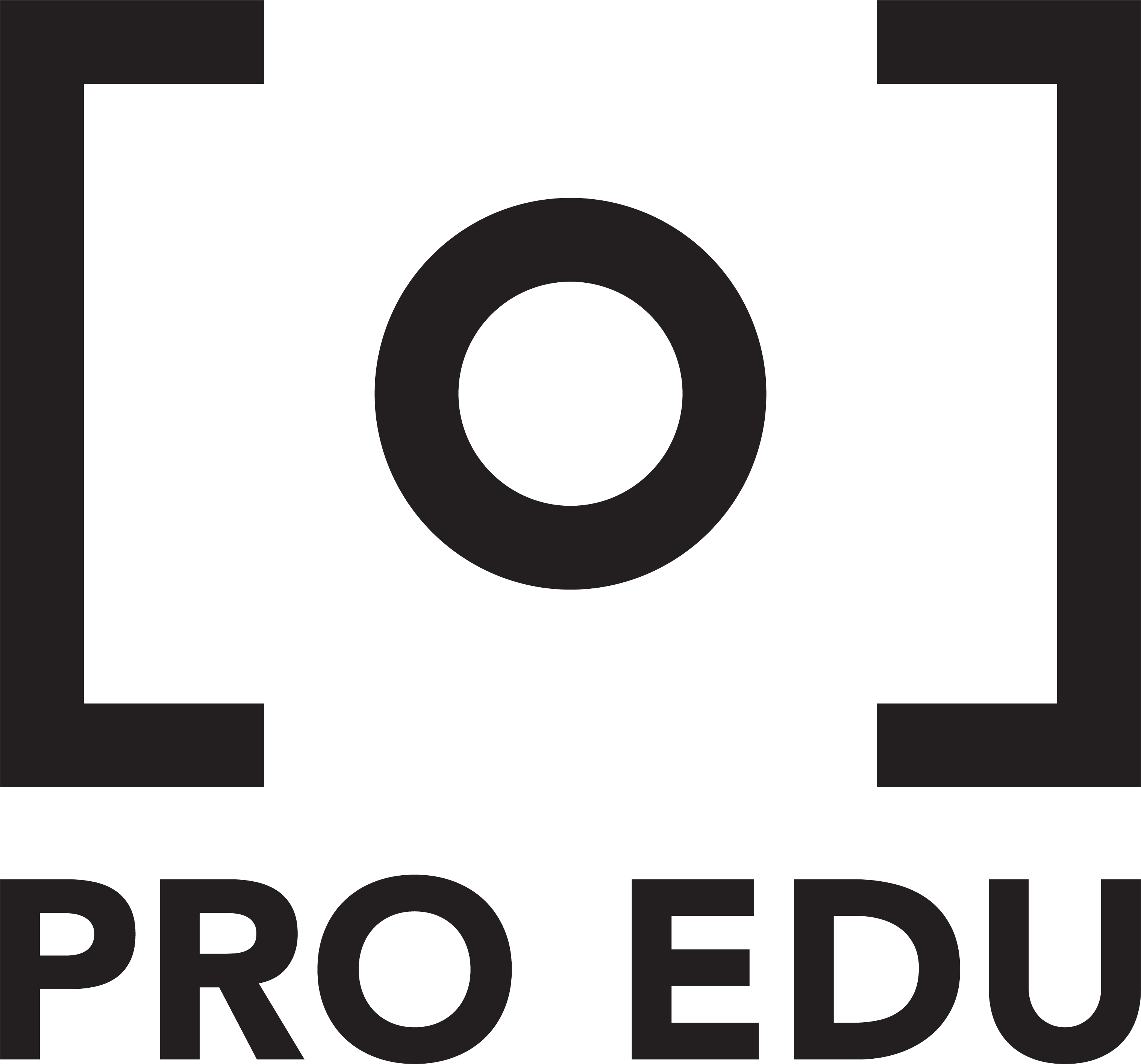The Art of Branding in Commercial Photography: Crafting a Unique Visual Identity
In the competitive realm of commercial photography, branding is more than just a name or a logo—it is the embodiment of our work's essence and the message that we communicate to our clients. Establishing a brand allows us to differentiate ourselves from a sea of competitors, offering a unique selling proposition that resonates with our target audience. Through effective branding, we create a consistent and recognizable style that becomes synonymous with our name, ensuring that when clients seek stellar visual content, our brand comes to mind.
Our branding is the story we tell through our images, the feelings we evoke, and the expectations we set. It should encapsulate everything from the quality of our work to our professional values, all while appealing directly to those we aim to serve. From the colors and fonts we choose to the way we showcase our portfolio, every element must work cohesively to forge a lasting impression. A thoughtfully crafted brand not only enhances our market visibility but also adds intrinsic value to our services, giving us a competitive edge in both negotiations and client loyalty.
Key Takeaways
- Effective branding sets commercial photographers apart in a saturated market.
- A clear, consistent visual style communicates our professional values and unique selling proposition.
- Cohesive branding contributes to market visibility, value addition, and client retention.
Understanding Branding in Commercial Photography
Branding in commercial photography is not merely about capturing images; it's about creating a distinct visual identity that resonates with audiences. We aim to craft a style that signifies our brand, ensuring that every image we produce aligns with the perception we wish to establish.
Defining a Photography Brand
In defining our photography brand, we prioritize setting ourselves apart from our competitors. Our brand isn’t just our logo or the way we design our website; it’s the core of our identity and how clients recognize and remember us. We take the time to develop a cohesive branding strategy that communicates our vision, values, and type of photography we specialize in. This includes careful consideration of not only the visual aspects, like our logo and color palette but also our messaging and the total experience clients have when they engage with us.
The Role of Visual Identity
The visual identity of our photography business is a crucial part of our brand. It goes beyond the mere aesthetics; it's a language that conveys our brand's personality without words. Our visual identity encompasses the logo, color scheme, typeface, and other visual elements that appear consistently across all our marketing materials. These elements work jointly to create brand recognition. When done effectively, they can evoke emotions and associations with high precision, enabling potential clients to identify our work, often even without directly seeing our name. We ensure that every photo we deliver aligns with our visual identity, reinforcing the essence of our brand to our audience.
Crafting a Unique Visual Style
In commercial photography, we must create a visual style that sets our brand apart. This involves distinctly defining the color palette and strategically using props and sets to showcase our unique selling proposition.
Significance of Color Palette
Color influences perception and evokes emotions, making it foundational in establishing a visual style. We analyze current trends and select a palette that represents our brand's aesthetic, ensuring it aligns with the message we aim to convey. For instance:
- Bold Colors: Signify vibrancy and energy.
- Pastel Colors: Convey softness and approachability.
Utilizing a consistent color scheme across our work helps in creating depth and a memorable identity. It's not merely about the hues we choose; it's about the emotion each color represents.
Utilizing Props and Sets
Props and sets play a crucial role in articulating our visual narrative. They should:
- Reflect our unique selling proposition.
- Complement the color palette to enhance the visual story.
We curate props that resonate with our message and establish a scene that transports viewers. Sets are crafted to create a context that accentuates the product or service while maintaining a harmonious aesthetic. Through deliberate selection and arrangement, we cultivate an atmosphere that transcends the ordinary.
Spotlight on Marketing and Promotion
In commercial photography, our branding and promotional strategies are as important as the quality of the images we capture. It's essential to present ourselves in a way that connects with our target audience, using the most effective platforms and methods to showcase our unique visual style.
Leveraging Social Media
We use social media platforms to engage with our audience, showcase our latest work, and build a community around our brand. Platforms like Instagram and Facebook are ideal for visual media, allowing us to share our portfolio with a wider audience. We also create behind-the-scenes content to give a more personal touch, ensuring our followers feel connected to our creative process. Here's how we make the most out of social media:
- Consistency: We post regularly to maintain our presence and keep our audience updated.
- Hashtags: We use relevant hashtags to reach potential clients who are looking for our photography style.
- Engagement: We interact with our followers to foster relationships and encourage word-of-mouth referrals.
By strategically using these tools, we enhance our brand's visibility and create opportunities for viral marketing.
Effective Website Presentation
Our photography website serves as our online portfolio—a gateway for potential clients to understand our brand and the services we offer. The way we present our work on our website can make a significant difference in attracting the right clientele. Here's what we focus on for our website presentation:
- Portfolio: Our strongest, brand-defining images are displayed prominently.
- Testimonials: We include reviews from past clients to build trust and credibility.
- Contact Information: We make sure it's easy for visitors to reach us, encouraging inquiries and collaborations.
Through a well-designed website that highlights our unique selling proposition, we create an online space that accurately represents our brand and appeals directly to our target market. This serves as a pivotal tool in our branding strategy, ensuring that clients can find us and that our work stands out in the busy online marketplace.
Connecting with Your Target Audience
In the competitive field of commercial photography, we understand that the true measure of our success lies in our ability to connect with our target audience. By honing in on who our ideal clients are and employing emotional engagement strategies, we create a brand that resonates deeply and drives engagement.
Defining Your Ideal Clients
We begin by identifying the precise group of individuals who will most value and connect with our work. For us, ideal clients aren't just demographics; they're real people with distinct preferences and needs. Consistency in our photographic style, tone, and message ensures that our brand speaks directly to them. We've learned this crucial step can significantly influence how we market ourselves and align our services with client expectations, as evidenced by insights from this guide on Branding for Photographers.
Emotional Engagement Strategies
Once we've distinguished who our ideal clients are, we shift our focus to forming a strong emotional connection. Emphasizing empathy and narratives, our visuals go beyond mere aesthetics. They reflect the stories and values that our clients care about, creating a compelling reason to choose our work over others. It is not just about the photograph, but the meaning behind it, which Colormatics clarifies in their discussion on The Art and Impact of Advertising Photography. Through strategic imagery that triggers emotions, we foster a sense of trust and loyalty, making our brand unforgettable.
Building a Comprehensive Portfolio
Creating a comprehensive portfolio is essential for us as professional photographers to showcase the breadth and depth of our work. This tool helps build our reputation and communicates our authenticity through narrative and storytelling.
Showcasing Diverse Work
To cultivate a diverse portfolio, we must consider the variety of our work. We focus on including a range of subjects and styles that reflect our skills and adaptability. This might mean displaying our best commercial work alongside fine art pieces or candid shots to illustrate our versatility. For each category of work, we're meticulous in selecting images that stand out:
- Commercial Photography: Images that highlight our ability to capture the essence of a brand.
- Event Photography: Shots capturing key moments, demonstrating our knack for storytelling.
- Portrait Photography: Pictures that showcase our skill in lighting and capturing expressions.
Narrative and Storytelling
Every photograph in our portfolio should contribute to a cohesive narrative. We use storytelling to engage potential clients, letting each image unveil a part of our photographic journey. This means:
- Selecting images that have a strong emotional pull or a unique perspective.
- Sequencing our work in a way that it unfolds a story to the viewer, possibly starting with more striking images to capture attention and then moving to images showing depth and various photographic techniques we excel in.
We edit our work consistently, ensuring that each image is part of a greater whole that defines who we are as photographers. It’s not just about the individual photographs – it's how they come together to define our unique brand.
Consistency and Cohesion Across Platforms
In commercial photography, we understand that the mastery of branding relies heavily on the uniformity of our presentation and the coherence of our messaging across all platforms. Through the strategic use of a mood board and a carefully curated personal brand, we ensure that our branding photography not only stands out but also maintains a recognizable style that resonates with our audience.
Maintaining Brand Message
We use our mood board as a visual tool to align every piece of content with our core message. This ensures that our personal brand is conveyed effectively, regardless of the medium. When we craft our stories, whether it's for social media, our website, or print media, we meticulously check that our tone and message are consistent. This consistency amplifies recognition and fosters trust with our clients.
-
Key Elements of Our Brand Message:
- Tone of voice: Maintains the same style and personality.
- Core values: Clearly reflected in every piece of content.
- Unique value proposition: Distinctly highlighted to set us apart.
Visual Consistency
For branding photography, visual consistency isn't just about the recurrence of our logo. It's about weaving our personal brand into the very fabric of our visuals. This translates into consistent color schemes, typefaces, and composition styles across different channels.
-
Checklist for Visual Cohesion:
- Color Palette: We stick to a predefined set of colors.
- Typography: We use a consistent set of fonts.
- Imagery Style: Our photos share a common aesthetic in terms of lighting, angles, and framing.
By firmly upholding visual consistency and cohesion, we craft a seamless brand experience that captivates and retains our target audience.
The Financial Aspect of Branding
In the competitive realm of commercial photography, understanding the financial dynamics of branding is crucial. We consider both the upfront investments and the long-term returns to ensure sustainability and profitability.
Balancing Cost and Quality
Investing in our brand's visual identity incurs costs, which must be carefully balanced with quality. We prioritize superior branding elements, from top-quality images to professional graphic design, which can require substantial budget allocation. Budgeting wisely for these expenses, however, is an investment in our brand's future. It directly influences sales because customers equate higher quality with higher value. We don't compromise on quality, as it is a catalyst to increase sales and improve the return on investment (ROI).
Strategic Pricing Models
Our pricing models reflect the value we bring to our clients. By adopting strategic pricing, we not only cover our costs but also position our brand as a leader in the market. This involves:
- Setting baseline rates that account for the cost of time, equipment, and other expenses.
- Offering tiered packages to cater to different client needs and budgets.
- Implementing premium pricing for specialized services that showcase our unique branding style.
We ensure our pricing models are transparent and provide value, which in turn, encourages clients to invest in our high-quality branding services, leading to sustainable sales growth.
Future Trends and Adaptation
In today's rapidly evolving photography industry, we must stay ahead by adapting to emerging trends and incorporating sustainability into our practices. These developments promise to reshape how we capture, present, and perceive imagery.
Incorporating New Trends
We observe that current trends in the photography industry emphasize authenticity and diverse visuals. To adapt, we integrate these elements into our commercial photography projects, understanding their power to create a genuine connection with audiences. We must also be at the forefront of technological advancements, utilizing tools such as high-resolution cameras and sophisticated editing software, to produce images that are not only striking but also reflective of modern aesthetics. It's crucial that we embrace innovation by experimenting with new techniques and styles, which can set us apart in a crowded market.
Sustainability in Photography
Sustainability is no longer just a buzzword but an essential practice within our industry. Our commitment to sustainability involves reducing waste and lowering our carbon footprint during photoshoots. We choose eco-friendly materials for our sets and practice energy-efficient methods of lighting and production. By fostering a culture of sustainability, we're contributing to a positive change within the industry and showcasing diverse narratives that speak to a responsible future. Through these actions, we not only build a recognizable style but also demonstrate our dedication to a more ethical and sustainable approach to commercial photography.
Frequently Asked Questions
In this section, we'll address some of the most common inquiries surrounding the cultivation of a unique style and the vital role it plays in establishing brand recognition in commercial photography.
How can a photographer develop a unique style for brand recognition?
To develop a unique style, we must first understand our creative preferences and strengths. Integrating composition styling, color harmony, and post-production workflows tailored to our vision can help us create a recognizable look that resonates with our target audience.
Why is consistency important in the visual elements of brand photography?
Consistency in visual elements such as color schemes, lighting, and composition ensures that every image we produce is instantly identifiable as part of our brand. This repeated and coherent visual messaging builds trust and makes our brand memorable to clients and consumers.
What are the key components of effective branding in commercial photography?
Effective branding in commercial photography rests on defining a professional identity, recognizing our target audience, and establishing a unique selling proposition (USP). These elements, along with consistent visual assets like logos and color palettes, form the backbone of a strong brand presence.
How does one curate a portfolio that showcases a distinctive branding style?
Curating a portfolio that showcases a distinctive brand style involves selection and presentation. We should choose work that exemplifies our brand ethos and arrange it in a way that highlights our consistent quality and unique approach, making our brand's vision clear to viewers.
In what ways can commercial photographers convey a brand's message through imagery?
Commercial photographers can convey a brand's message by crafting imagery that aligns with the brand's values and ideas. Visual storytelling, choice of subjects, and context all serve as potent tools for representing a brand's identity and core messages to the audience.
What strategies can be used to maintain brand identity across different photography campaigns?
Maintaining brand identity across campaigns involves a steadfast adherence to established style guides and the brand's visual narrative. We must ensure that new content is complementary to the existing body of work, subtly evolving while preserving the brand's signature elements.













